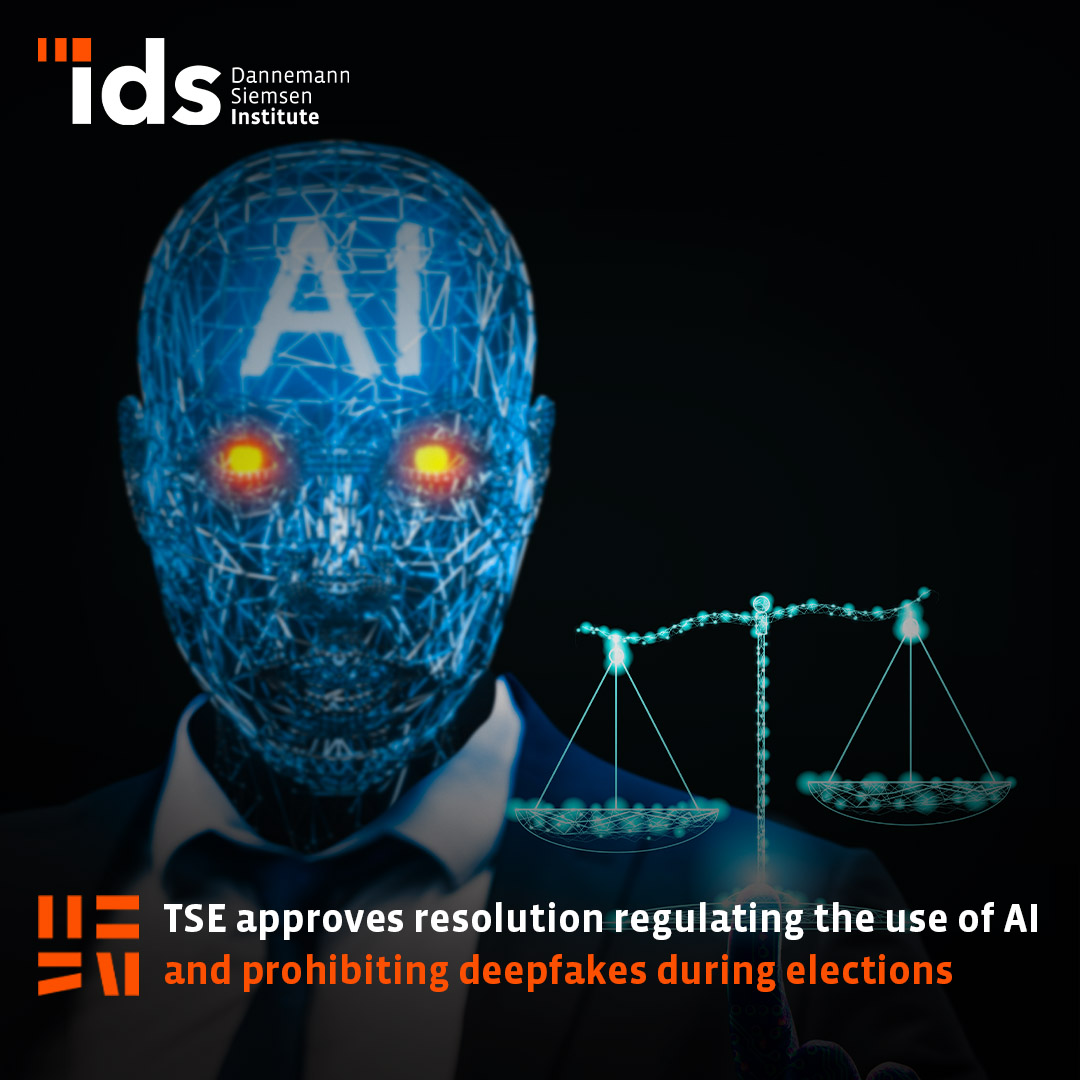18 de março de 2024
Share
TSE approves resolution regulating the use of AI and prohibiting deepfakes during elections
Recently, the Brazilian Superior Electoral Court (TSE) approved a series of resolutions with rules to be applied in this year’s elections. Among them and seeking to adapt the electoral process to the influence of new technologies, the court published TSE Resolution No. 23.732/2024, which deals with electoral propaganda. Provisions were introduced on the use of technological tools, such as artificial intelligence (AI) and deepfake (manipulation of videos, audios or photos), in the elections.
First, with regard to AI, the TSE defined that “the use in electoral propaganda, in any modality, of synthetic multimedia content generated by means of artificial intelligence to create, replace, omit, merge or alter the speed or superimpose images or sounds imposes on the person responsible for the propaganda the duty to inform, in an explicit, prominent and accessible way, that the content was manufactured or manipulated and the technology used” (Art. 9-B). In these terms, chatbots can also be used to mediate campaign communication with natural persons, although any simulation of a conversation with real candidates is forbidden (Art. 9-B, § 3).
Then, according to Article 9-C, “the use, to harm or to favor a candidacy, of synthetic content in audio or video format, or a combination of both, that has been digitally generated or manipulated, even with authorization, to create, replace or alter the image or voice of a living, deceased or fictitious person (deep fake)” is prohibited.
In Article 9-E, the resolution determines that big techs (application providers) must adopt and disseminate measures to prevent or reduce the circulation of “notoriously untrue or seriously out of context facts that affect the integrity of the electoral process”. The article also deals with the joint liability of these providers if they do not immediately make certain content and accounts unavailable during the electoral period.
Finally, the TSE establishes, in Article 23-A, that authors of artistic or audiovisual works used without authorization for the production of jingles, even if in the form of parody or another piece of electoral propaganda, may request that the conduct be stopped.
The TSE Resolution can be accessed via the link: https://www.tse.jus.br/legislacao/compilada/res/2024/resolucao-no-23-732-de-27-de-fevereiro-de-2024
Note: For quick release and cost control, this English version is provided by automated translation without human review.
